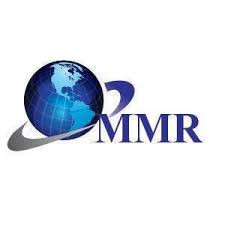Dairy products have long been hailed for their purported health benefits, from providing essential nutrients to promoting bone health. However, emerging research has shed light on the potential health risks associated with excessive dairy consumption. While dairy remains a staple in many diets worldwide, it's essential to delve into the lesser-known consequences it may pose to our health.
Dairy products encompass a wide range of foods, including milk, cheese, yogurt, and butter, among others. These products are rich sources of calcium, vitamin D, and protein, which are vital for maintaining overall health. Nevertheless, health risks of dairy consumption have come under scrutiny in recent years, prompting individuals to reconsider their intake.
One of the primary concerns surrounding dairy consumption is its link to various health conditions, including cardiovascular disease. Despite containing essential nutrients, dairy products also harbor high levels of saturated fats and cholesterol, both of which are notorious for contributing to heart disease. Excessive consumption of these fatty dairy products can elevate blood cholesterol levels, thereby increasing the risk of heart attacks and strokes.
Moreover, health risks of dairy consumption extend beyond cardiovascular health to encompass digestive issues. Lactose intolerance, a condition characterized by the inability to digest lactose, the sugar found in dairy products, affects a significant portion of the global population. Consuming dairy products can trigger symptoms such as bloating, gas, diarrhea, and abdominal discomfort in individuals with lactose intolerance, leading to a diminished quality of life.
Furthermore, dairy consumption has been implicated in the development of certain cancers. Studies have suggested a potential link between high dairy intake and an increased risk of prostate, ovarian, and breast cancers. While the exact mechanisms underlying this association remain unclear, it underscores the importance of moderation when incorporating dairy into one's diet.
In addition to physical health concerns, dairy consumption has also been tied to various skin conditions, including acne. Dairy products contain hormones and growth factors that may exacerbate inflammation and oil production in the skin, contributing to the development of acne lesions. For individuals prone to acne, reducing dairy intake or opting for dairy alternatives may help alleviate symptoms and improve skin health.
Furthermore, concerns have been raised regarding the environmental impact of dairy production. The dairy industry is a significant contributor to greenhouse gas emissions, deforestation, and water pollution. Cows raised for dairy production produce methane, a potent greenhouse gas, and require large quantities of feed and water, contributing to deforestation and water scarcity. As concerns about climate change continue to mount, reducing dairy consumption may serve as a means of mitigating environmental degradation.
Despite these health risks of dairy consumption, it's essential to acknowledge that dairy products can still be enjoyed in moderation as part of a balanced diet. For individuals who choose to consume dairy, opting for low-fat or non-fat varieties and incorporating plenty of fruits, vegetables, and whole grains into their diet can help mitigate some of the potential negative effects.
In conclusion, while dairy products offer valuable nutrients, it's crucial to be aware of the potential health risks of dairy consumption. From cardiovascular issues to digestive disturbances and environmental concerns, excessive dairy intake can pose various challenges to both our health and the planet. By making informed dietary choices and prioritizing moderation, individuals can strike a balance between enjoying dairy products and safeguarding their well-being.








